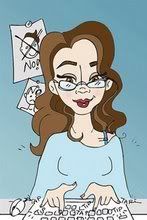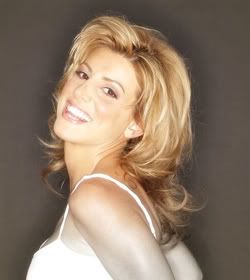David Skelly and Jennifer Skelly are a husband/wife screenwriting team. David was part of the story development team at PIXAR Animation Studios on Toy Story 2, Monsters, Inc., and Cars, and he wrote the screenplay for Jack and Ben, an animated feature for Laika Entertainment. Jennifer is a story and science consultant for The Zula Patrol, an animated series on NBC and PBS, and is currently writing a new television series with David for Nicktoons.
The Skellys—who are working on their upcoming book: Improv for Writers—teach workshops, illustrating the value of improvisation for writers. Their workshops include techniques for improving story and your pitch, writing collaboratively, and more.
In this “team” interview, David and Jennifer Skelly speak with Write On! about their career journeys and working together, as well as offer sound advice for creating.
How did you get your start as a writer?
DS: I think I’ve always been a writer. It’s hard to find a beginning. My mom is a writer; I grew up in that world. And even though she warned me not to pursue it, I did! I wrote and illustrated my own comic strip all through high school, and in college I wrote my first full-length screenplay. I suppose that’s what really hooked me: that first script. I have a background in both writing and art, so I approached story from two directions: first, as anyone might approach it, writing pages, and the other: drawing storyboards, which I did for many years at Pixar Animation Studios. And while I was there, I was being taught by Joe Ranft, the head of story, and John Lasseter, the creative head of the studio. I had some terrific instructors in school, but it was at Pixar that I really honed my craft. I was working with some true masters of story. And with every film I worked on, I got more and more involved with crafting the story. On my off-time, I was writing my own scripts, and my friend and mentor, Jerry Juhl, the head writer of The Muppet Show, read everything I wrote. He’d give me great feedback, and great insight into the industry.
JS: I wrote my first TV spec script in college—I was studying acting—and I wrote it to create a role for myself on my favorite show. But I didn’t know what a spec script really was, and I didn’t know what to do with it. And then I stopped writing. Cut to: many years later—I was still an actor who kept getting the same advice, “You should be writing and producing your own work.” As it turns out, my husband was a screenwriter who was used to writing in a team environment—and he kept bouncing ideas off of me. And what started as a simple, “Hey, would you read this page?” turned into a, “Hey, would you rewrite this page?” Suddenly we were writing partners.
What is the your favorite part of being a writer? The greatest challenge?
JS: Right now? My favorite part about being a writer is that I get to work from home. Not only am I lucky enough to get to work with my husband, but I get to be with my ten-month-old son every day. And the biggest challenge … trying to be a writer at home with a ten-month-old son.
DS: Boy, we must sound pretty schmaltzy, but I really love being home with my wife and son. And our dog, of course. Don’t want to leave her out. She’s actually a terrific story editor, we’ve discovered. When we’re breaking a story, we pin up all our ideas on 3×5 cards, and she’s been known to wag her tail and knock a scene or two off the board—she’s usually right about omitting those scenes.
We have to take meetings, of course, and sometimes we’re working with out-of-town studios. I wrote a script for Laika, an animation studio up in Portland, that required me to do a lot of commuting, but I was still based at home. I like being on my own schedule. The challenge for me isn’t so much about keeping on a schedule, it’s about learning to stop. And I suppose that’s because there’s no line drawn between work and home, that can be the biggest challenge—finding that balance.
How important is improv as a tool for writers?
DS: We think it’s essential. Robert Dalva, one of the most amazing film editors we’ve even known, told us once that to be a great editor, you have to be a great dancer. Editing is all about rhythm and movement and timing, just like dancing. And writing is all about acting: creating believable characters and dialogue and being truthful.
JS: Yeah, but we don’t think improv is just good for writers. We think improv is good for life: being adaptable, being flexible, and most importantly—being willing to play. These are are all qualities that make writing—and life—easier and more fun.
Why/how did you stumble upon this niche?
JS: When David and I started writing together, we realized we brought a lot of the same tools to the game—David from a writing and story background and me from my background as an actor. As we compared notes, we realized we both had gotten many of these tools from improv.
DS: Studying improv was a requirement for all of us on the story development team at Pixar. We all had to take improv classes to learn about working as a team and working as a collective mind, and to learn about truthful character interactions—responding truthfully to what we see and hear. And that’s often where the funny comes from.
JS: And you were learning how to be good brainstormers—you were learning how to accept offers and input from others. One of your favorite quotes from Jerry Juhl is:
DS: “Stupid is good.”
JS: You should explain that.
DS: No, you go.
JS: It means that some of the best ideas come when we don’t censor ourselves. And when we’re not afraid to offer an idea that everybody else might think is stupid …
DS: That’s when something really special can happen. No idea is a bad idea. Not in the beginning, anyway!
What is it like to work with your spouse?
JS: Awesome.
DS: It really is.
JS: Annoying.
DS: It really is.
JS: Fun. Maddening. Joyous.
DS: Ditto. It works for us. We like the same things. We agree about enough that we’re writing the same story …
JS: And yet we disagree about enough that we’re constantly challenging each other to be truthful … and to make sure we’re telling the best story we can.
Advice for improvisers?
JS: Play. Have fun. Write. Be obvious. Do what makes sense to you.
DS: What’s obvious to you is original for everyone else. Be truthful to yourself. Be bold. Be daring.
JS: Don’t be afraid to fail!
Advice for screenwriters?
JS: Play. Have fun. Be obvious. Nobody else brings what you bring to the page. You bring to your writing the whole history of you—and you’re the only one with that history. No one else has lived your life.
DS: And we have to trust that our lives are interesting to other people. The details of our every day, how we met our friends, our losses, our betrayals—the more we tap into our personal lives, the more universal our writing becomes.
What do you know now that you wish you knew when you first started writing?
JS: That I would get better. And it would get easier.
DS: I wish I knew how long it would take. This process of becoming a writer. My mom warned me. I should have listened. Sorry, Mom. But I love writing. I couldn’t help myself.
Tags: Author Q&A Cars Collaboration David Skelly Debra Eckerling Improv Improv for Writers Jack and Ben Jennifer Skelly Monsters Inc Screenwriting Toy Story 2 Write On! Zula Patrol











Comments are closed.
[…] David & Jennifer Skelly, Improv for Writers […]